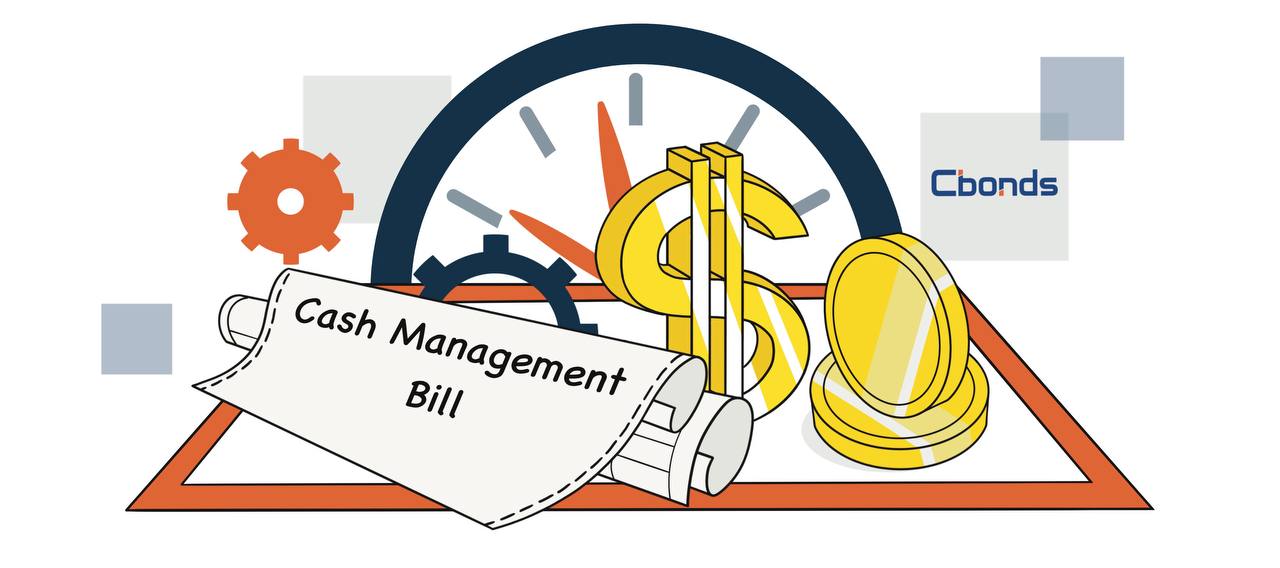- Новини та Аналітика
- Емісії
- Акції
- ETF та фонди
- Календар
- Індекси
- Інструментарій
- API
Cash Management Bill
What Is a Cash Management Bill (CMB)?
A Cash Management Bill (CMB) is a short-term financial instrument issued by the United States Treasury to address temporary cash shortfalls. These bills play a crucial role in the government's cash management strategy, providing a flexible means to raise cash when needed. Unlike other securities, CMBs are not sold on a regular schedule; instead, they are introduced to the market when the Treasury Department identifies a necessity to bolster its cash reserves due to lower cash balances. Maturity dates for CMBs can range from as short as seven days to up to four months, allowing the government to tailor its borrowing to meet specific short-term financing needs. Despite their short-term nature, CMBs offer higher yields compared to fixed-maturity bills, making them an attractive option for institutional investors seeking low-risk, short-term investments. The U.S. Treasury's ability to issue CMBs on short notice, sometimes within one business day, enhances their appeal as a flexible financial instrument. This adaptability allows the Treasury to navigate fluctuating economic conditions promptly and efficiently, striking a balance between addressing immediate cash needs and avoiding excessive debt.

Why Cash Management Bills Matter
Cash Management Bills (CMBs) hold significant importance in the financial landscape as they offer the U.S. Treasury a swift and flexible solution to address short-term cash needs. These bills are crucial for maintaining the government's day-to-day operations and responding promptly to unexpected financial demands. The ability to issue CMBs on short notice, with maturities ranging from one day to several months, provides the Treasury with a tool to effectively manage cash flow without resorting to long-term debt.
For investors, especially institutional ones like money market funds, CMBs offer a low-risk, short-term investment option. The auction process associated with CMBs ensures a fair and competitive market, attracting investors seeking stable returns within a shorter investment horizon. The strategic use of Cash Management Bills aids in striking a balance between meeting immediate funding needs and avoiding unnecessary debt, contributing to overall financial stability and the smooth functioning of the financial markets.
Advantages of Cash Management Bills
-
Low Risk. CMBs are backed by the full faith and credit of the U.S. government, making them a low-risk investment. Investors can have confidence in the safety of their investment, and the likelihood of the Treasury meeting its obligations upon maturity is high.
-
High Liquidity. CMBs are highly liquid, allowing investors to easily buy or sell them in the secondary market. This liquidity makes them attractive for institutional investors who need flexibility in managing their cash reserves and adjusting their portfolios quickly.
-
Short-Term Maturity. With maturities ranging from a few days to several months, CMBs offer a short investment horizon. This is ideal for investors looking to park funds for a brief period and earn a return on their investment without committing to long-term holdings.
-
Competitive Yields. CMBs are issued at a discount to their face value, with the difference representing the interest earned by the investor. This structure often provides competitive yields compared to other short-term investment options, such as money market funds and commercial paper.
-
Effective Cash Flow Management. CMBs play a crucial role in helping the U.S. Treasury manage its cash flow efficiently. The CMB enables the Treasury to manage its cash flow by providing a source of funds to cover any short-term cash deficits. The Treasury can issue CMBs when it needs to raise funds, and pay them off when it has sufficient cash on hand, allowing it to maintain its cash reserves and avoid unnecessary borrowing.
Examples of Cash Management Bills
-
CMBs for Social Security. The U.S. Treasury issues CMBs specifically to manage the cash flow needs of the Social Security Trust Fund. These bills typically have a maturity period of up to one year, helping the federal government address the short-term financial requirements of the Social Security program.
-
CMBs for Medicare. Another specialized type of CMB is issued to manage the cash flow needs of the Medicare Trust Fund. Like those for Social Security, these bills have a maturity period of one year or less, allowing the government to navigate short-term financing needs related to the Medicare program.
-
CMBs for Natural Disasters. The U.S. government needed additional funds to support emergency relief efforts and rebuilding efforts. This CMB issuance helped the government respond to the immediate crisis while planning for longer-term budgetary adjustments.
-
CMBs for COVID-19. In 2020, the U.S. government faced an unprecedented cash need due to emergency spending related to the COVID-19 pandemic. This included funding for healthcare, economic stimulus, and unemployment benefits.
Вивчити найповнішу базу даних
1 000 000
облігацій
80 234
акцій
168 394
ETF & Funds
80 000
індексів
Відстежуйте свій портфель найефективнішим способом
- Скринінг облігацій
- Watchlist
- Excel ADD-IN
